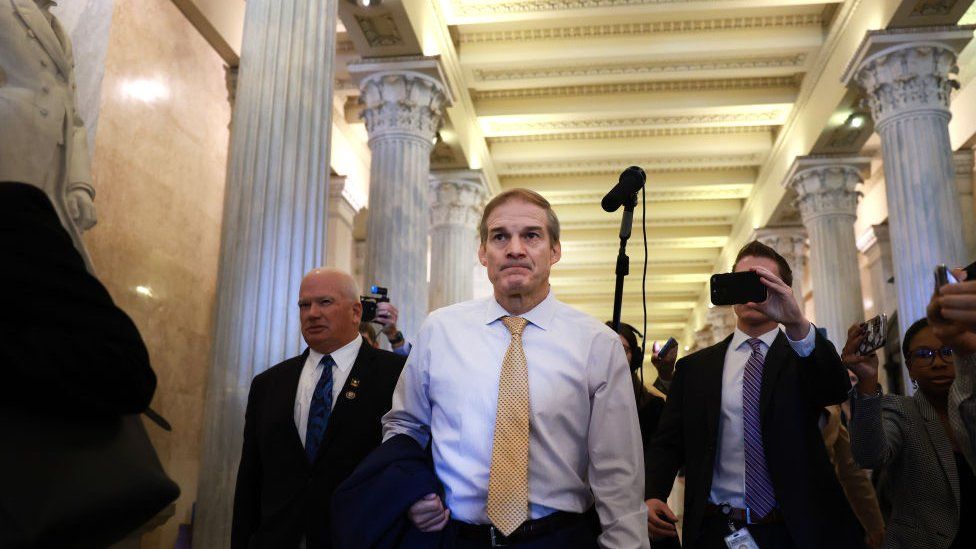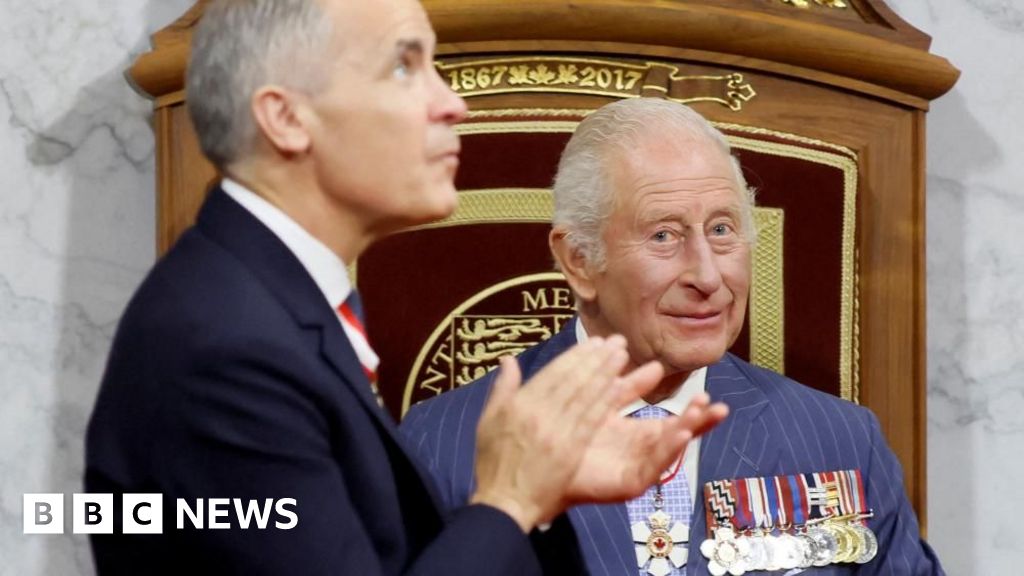ARTICLE AD BOX
 Image source, Getty Images
Image source, Getty Images
Jim Jordan secured only 200 votes in the first round of voting, with 20 Republicans voting against him
By Bernd Debusmann Jr on Capitol Hill & Nadine Yousif
BBC News
Republican Jim Jordan has lost the first vote in his bid to become US House of Representatives Speaker after stiffer-than-expected opposition from members of his own party.
Despite intense lobbying, 20 Republicans refused to vote for the right-wing Ohio congressman.
The Trump ally said another vote would be held on Wednesday morning.
Congress's lower chamber has had no Speaker since Kevin McCarthy was ousted two weeks ago in a right-wing revolt.
Without a leader, the House is unable to pass any bills or approve White House requests for emergency aid. That includes potential help for Israel amid its war with Hamas.
And the US government will shut down if Congress does not agree future spending by 17 November.
Mr Jordan earned 200 votes in the first ballot on Tuesday, but he needs 217 votes to secure the Speaker's chair.
Even the Democratic nominee, Hakeem Jeffries of New York, earned more votes - 212 - than Mr Jordan, but Democrats are the minority party in the House, so it was not enough.
Asked earlier if he thought he would win the first round of voting, Mr Jordan told reporters: "I think so," but if not, "we'll keep voting".
Republicans who refused to pick Mr Jordan voted instead for Kevin McCarthy, the former Speaker who was ousted on 3 October, or picked other candidates.
Mr Jordan held meetings afterwards with some of the Republicans who voted against him.
Several, however, suggested they would not budge, and some indicated the number of votes against Mr Jordan might actually grow.
There had been murmurs on Capitol Hill of a second vote on Tuesday, but Mr Jordan later said the ballot would instead take place at 11:00 (15:00 GMT) on Wednesday.
Watch: Jim Jordan: Three things to know about the conservative firebrand
Mr Jordan is House Judiciary Committee chairman and a founding member of the ultra-conservative House Freedom Caucus.
He seemed initially to be an outsider in the race for the speakership.
He has served in Congress for 16 years, and was once labelled a "legislative terrorist" by former Speaker John Boehner.
When nominating Mr Jordan on Tuesday, Republican congresswoman Elise Stefanik called him "a patriot, an America First warrior who wins the toughest of fights".
But after the vote it was clear that Republicans remained divided, and they would need to regroup to see whether they could get Mr Jordan's candidacy back on track - or find another option.
Byron Donalds, a Republican lawmaker who supports Mr Jordan, told the BBC he was surprised at how many people voted against Mr Jordan.
When asked if another round of votes would be held on Tuesday, he replied: "I'm not sure", but he added that Mr Jordan should not drop out just yet.
Another Republican who voted against Mr Jordan, Mario Diaz-Balart, said he did not feel "pressure at all" to change his vote.
He added that any effort to "intimidate" him would end any negotiations. "If that's the case, that's where you lose me," he said.
A similar scenario played out in January, when Mr McCarthy needed 15 rounds of voting over four days to win the Speaker's gavel.
Fierce resistance to Ukraine war funding among Republican hardliners, including Mr Jordan himself, contributed to the vote that led to Mr McCarthy's ouster.

 1 year ago
49
1 year ago
49








 English (US) ·
English (US) ·